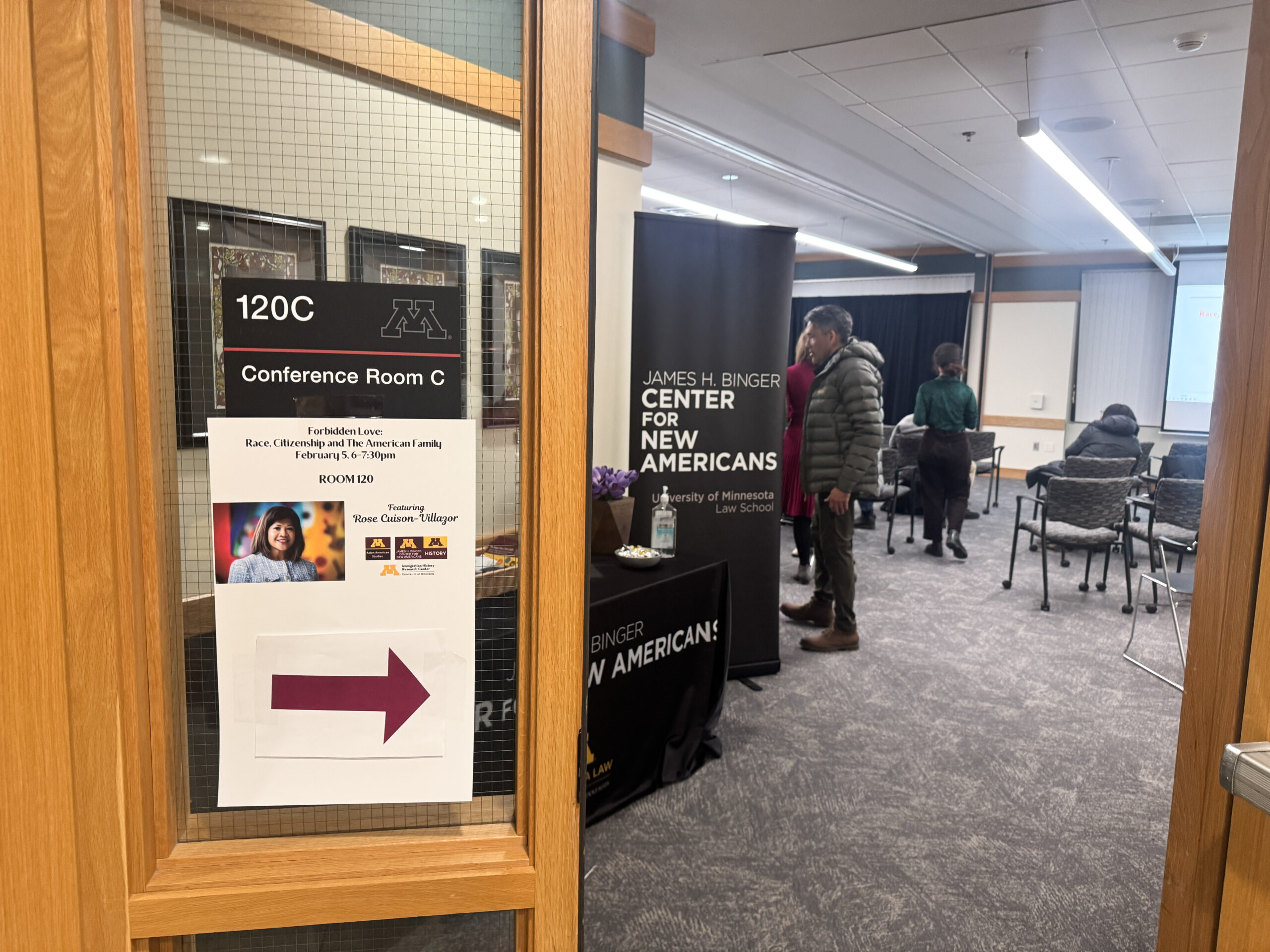Professor Rose Cuison-Villazor spoke in February on “Forbidden Love: Race, Citizenship, and the American Family.”
Byline: By Kathryn Gage
Rose Cuison-Villazor, a professor of law and social justice at Rutgers Law School, discussed the importance of paths to citizenship in a Feb. 5 talk that raised awareness about the multigenerational struggles of immigrant families.
“Citizenship is a path of belonging,” Cuison-Villazor said at the talk to 60 people at Anderson Library about her research titled “Forbidden Love: Race, Citizenship, and the American Family.”
Her research focuses on the federal government’s role in limiting interracial marriages between Japanese women and American men from 1945 to 1952. At the event, Cuison-Villazor told the story of three generations of women and the different hardships they faced getting citizenship and finding a sense of belonging.
The talk was an introduction to Cuison-Villazor’s upcoming book, “Forbidden Love,” which outlines her research.
Cuison-Villazor followed the stories of Emilie Bouiss, a half German and Japanese woman, her daughter Vivianne Wilson, who was half Japanese and a quarter German and Swedish and her granddaughter Mary Ann Vaughn.
Bouiss married an American soldier stationed in Japan but was not given American citizenship due to the restrictive laws. These restrictions sparked a battle for citizenship that would span three generations.
Bouiss and Wilson never got American citizenship, but after a long legal battle, Vaughn did.
Cuison-Villazor said her research is timely for people without citizenship, where everything is a constant reminder that they don’t belong.
Vaughn’s struggle came out of the fact that she didn’t feel like she belonged anywhere, Cuison-Villazor said.

Yumiko Ehara, an international student at the university who attended the talk, said she appreciated Cuison’s talk and others like it because it opens people up to diverse perspectives.
“If you looked around at the talk, a lot of people here were Asian,” Ehara said. “I appreciate that the university allows people to hear these stories.”
Mahbubul Bhuiyan, a graduate student at the university, said he also regularly attends the talks sponsored by the Immigration History Research Center and the Asian American Studies Program.
“I come to these events because I think they are important to hear,” Bhuiyan said.
In a time of uncertainty surrounding immigration law, Cuison-Villazor said the stories she researched act as a cautionary tale.
“People have a right to be scared right now,” Cuison-Villazor said.

